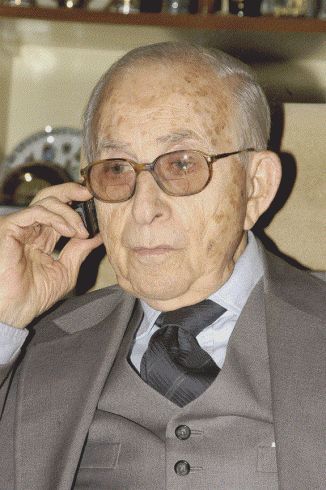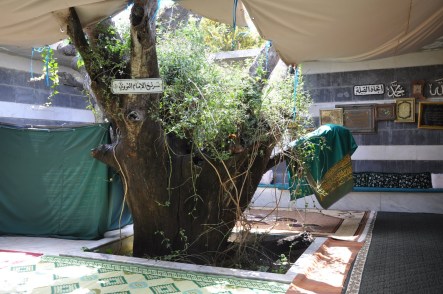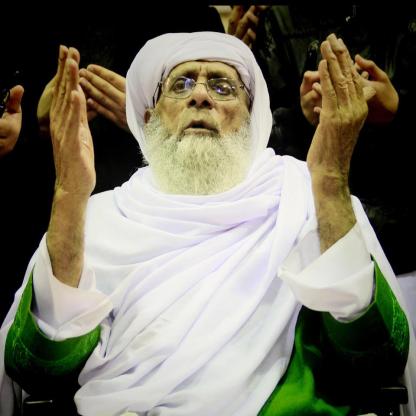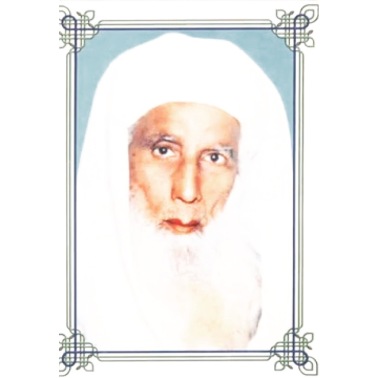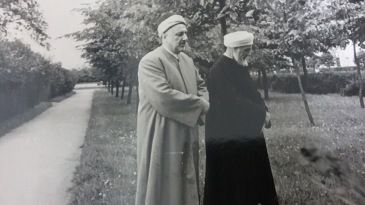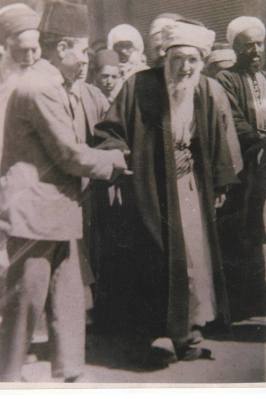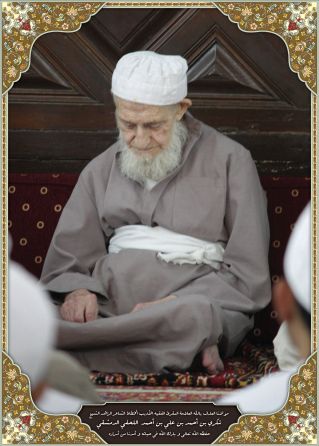![Sayyiduna Imam al-Nawawi's Maqam Destroyed in Nawah]()
Assalamu Alaykum Wa Rahmatullahi Wa Barakatuh , We pray this finds everyone well, wrapped in Allah’s mercy and steadfastly traveling the path to eternal felicity, in sha Allah.
The Maqam of The Erudite Scholar and Friend of Allah Sayyiduna Imam Abu Zakariyah Muhiy al-Din Yahya Ibn Sharaf al-Nawawi Radi Allah ‘anhu has been destroyed in Nawa. La hawla wala quwatta illa billah.
تدمرت اليوم ضريح إمام من أبرز أئمة أهل السنة والجماعة الإمام النووي رحمه الله تعالى شارح صحيح الإمام مسلم على أيدي الإرهابيين. اللهم انصرنا على القوم الكافرين.
He is Yahya Ibn Sharaf , Muhiy al-Din Abu Zakariyah al-Nawawi (631–676 AH) the pious, ascetic, most learned, scrupulously Godwary, accomplished jurisprudent and Hadith Master, the impeccable Shaykh al-Islām by the unanimity of the people of the Sunna of the Prophet (Allah bless him and give him peace), fearless before kings, lordly and chaste, who died young yet, in a short life of 45 years, produced works of learning that made him the principal authority in the later Shāfi‘ī school. He is the “the standard-bearer of the Friends of God” (al-Dhahabī); and he himself said, “God has blessed me in the right use of my time,” in reference to Imām al-Nawawī’s remarkable scholarly output and achievements. Imam al-Nawawi is named after his hometown of Nawa near Damacsus. He is “the Spiritual Pole of the noble Friends of God, the Legist of Humankind, the Reviver of the Sunna and the Slayer of Innovation” (al-Sakhāwī). May God bestow great and endless mercy on him, bless him, and reward him on behalf of every Muslim!
It was said to him (al-Subki) that he (al-Nawawi) had departed for his home place of Nawa. He then passed away there after falling ill for a few days. So he (al-Subki) asked for the place where he (al-Nawawi) used to sit, when they pointed it out to him Imam al-Subki placed his head on the ground of that place and covered his cheek and face with dust on it saying:
And in Dar al-Hadith there is a subtle meaning
On carpets where I incline and take refuge:
Perhaps I might touch with my very face
A spot touched by al-Nawawi’s foot.
Imam al-Suyuti said in his ‘Minhaj al-Sawi’ (subtitles from translator):
His Study in Damascus and Striving in the Seeking of Knowledge
Ibn al-Attar said: The Shaykh said, ‘When I was 19 years of age, my father took me to Damascus, in the year 49 and I took up residence in the Madrassa al-Rawahiyyah. I spent around two years there where I did not place down my side on the ground. My provisions in it were the rations of the Madrassa and nothing else.’
He said, ‘I memorized al-Tanbih in four and half months and a quarter of al-Muhadhab in the rest of the year.’
He said, ‘I studied with our Shaykh, the Imam, asectic scrupuluos scholar, Abu Ibrahim Ishaq bin Ahmad bn Uthman al-Maghribi al-Shafi. I kept his company and he was impressed by me when he saw my busying myself (with knowledge), punctuality and not mixing with people. He loved me greatly and made me the repeater of the lesson in his circle for the majority of the group.
His First Hajj and Opening
He said, ‘When it was the year 51 I performed Hajj with my father and the standing (in Arafat) that year was on Friday. Our journey was from the first of Rajab and I resided in the city of the Prophet (Allah bless him and give him peace) for around a month and a half.’
His father said, ‘When we set out for the journey from Nawa he fell ill with fever until the day of Arafah.’ He said, ‘He did not groan (in pain) at all. When we returned to Nawa he travelled to Damascus, Allah poured forth upon him abundantly. He continued to busy himself with knowledge and follow the example of his Shaykh Abu Ibrahim Ishaq in worship, prayer, fasting continuously, asceticism and scrupulousness. When his Shaykh passed away he increased his involvement with knowledge and action and performed Hajj another time.’
If Imam al-Qushayri Had Met Imam al-Nawawi
Ibn al-Attar said, ‘Our Shaykh Qadi Abul Mafakhir Muhammad bin Abd al-Qadir al-Ansari said to me: If al-Qushayri the author of the Risalah had met your Shaykh and his Shaykh he would not have not have mentioned anyone before them both due to their great scholarship. This is due to their encompassing knowledge, action, asceticism, scrupulousness, articulating wisdom and other than these.
Twelve Lessons in One Day
He said, ‘The Shaykh mentioned to me saying: I would study every day 12 lessons a day with the scholars by way of explanation and correction. Two lessons in al-Wasit, a lesson in al-Muhadhab, a lesson in al-Jam’ bayn al-Sahihain, a lesson in Sahih Muslim, a lesson in al-Luma’ of Ibn Junni, a lesson in Islah al-Mantiq of Ibn al-Sikkayit in language, a lesson in Tasrif, a lesson in Usul al-Fiqh, a lesson in Asma al-Rijal and a lesson in Usul al-Din.’
He said, ‘I would record all that would related to the explanation of the difficult, clarification of expressions and precision of language.’
He said, ‘Allah blessed me in my time, busying myself (with knowledge) and helped me with it.’
An Experience with His Seeking to Study Medicine
He said, ‘It occurred to me to study medicine (ilm al-tibb) so I purchased al-Qanun and resolved to study it. However my heart became darkened and I remained for days unable to busy myself with anything, so I reflected on my matter and from where the intruder had entered upon me. Allah (Most High) inspired me that its cause was my involvement with medicine (tibb). I sold immediately that book and removed from my hime all that related to medicine. After this my heart became enlightened, my state returned back to me and I returned to that which I was upon originally.’
Khatm of Imam Nawawi’s 40 Hadith | Sayyid Shaykh Muhammad Abul Huda al-Yaqoubi
The life of Sayyiduna Imam al-Nawawi Rahimahullah
From Imam al Nawawi’s time until now over 200 known commentaries written
- Concern with the transmission of this book was unparalleled
- Aspects of biography of Imam Nawawi:
- One of great reasons for success of this book is related to who compiled it
- In our history see the extent to which an individual was sincere had a pure intention was concerned for Allah and the good of the community alone is the extent to which a book will have blessing, extent to which it will have constant transmission
- There have been many short books of Hadith, but there’s something about this book, knowing Imam Nawawi will help with that
- Imam Nawawi given the title Abu Zakariya (name was Yahya, never married) born in 631 of Hijra in small town outside of Damascus “Nawa”, this man was a shopkeeper lived a simple life known for his piety and honesty
- Much of what we know is through his father (who outlived his son), Shaykh Afthar one of his greatest student
- Father mentions one night in Ramadan when Imam Nawawi was 7 years old, small 2 room home, everyone slept in one main room together, Imam Nawawi in middle of the night he woke up and started waking everyone else up yelling do you all see that (27th night of Ramadan) they say what? He says don’t you see it the room is filled with light, father said no one else had seen anything, but he said I knew that my son this 7 year old had seen laylat’al qadr
- Another indication of who this boy was to become, at age of 10, a Shaykh Yasin al-Murakashi walking in the streets of Nawa see boys playing in the street and they’re all picking on one why don’t you come play with us, and he’s off to the side crying and holding a mushaf and he’s saying I don’t want to play I just want to read the mushaf
- Shaykh Yasin comes over and finds the boy’s Quran teacher, he tells him pay attention to this boy because he will be someone for the ummah
- His Quran teacher looks at Shaykh Yasin and says are you an astrologer? Shaykh Yasin tells him take care of him and asks where his father
- Shaykh Yasin goes to Imam Nawawi’s father Sharaf and tells him you need to be concerned about this boy and make sure that he’s taken care of in terms of his learning because he will be someone for this Ummah
- His father says my son could be someone for this ummah? He sat him in the store and told his son all you do is sit here and memorize the Quran, so Imam Nawawi all he did was memorize
- After that his father started him in what he could in town of Nawa and took him to the teachers, and when that was exhausted, at age of 19 he takes him to Damascus
- At 19 they move to Damascus and Imam Nawawi becomes enrolled in a famous school there, school of one of the famous muhaditheen, at that point Imam Nawawi says for the 2 years I was in that madrasa I never slept on my side, I slept leaning back because I wouldn’t allow myself to sleep too much (this was known of Imam Al Bukhari himself as well) because of that in 4 months he memorized Qitab Al-Tarbih a very difficult book in Shafii fiqh, and then spent rest of period memorizing hadith
- After that he and his father decide they’re going to Hajj, as he leaves Imam Nawawi is taken over by a strong fever, that fever didn’t end until the day of Arafah (took a month just to get to Hajj let alone the journey and he had a fever this whole time) his father said he did not moan or complain once traveling in desert to Hajj with a sever fever, for him it’s sabr that he has that chance
- When they return from that Hajj, his father said it was like Allah was pouring knowledge down into Imam Nawawi
- At that point, he would spend the day time in 12 different lessons with Shuyukh, he would use the time in between the classes to walk to the next class to memorize the previous lesson and to look at books that he doesn’t have time to because he’s studying so much
- He would go home at night and he would write, he would write until he couldn’t write anymore that evening, then he would lean back sleep the athan would come and he’d wake up and the day would start again
- One of great statements he makes about that time “it came to my mind while I was engaged in all this study, that perhaps I should study some medicine. So I bought Qitab al-Qanoon of Ibn Sina and brought it home and I resolved that I was going to study medicine. So my heart began to darken and days would pass I was unable to do anything so I started thinking what could it be? And then it came to me I was inspired to recognize, it was because I was busying myself with medicine, so I sold the book and I took out of my house any book that was related to medicine and light entered my heart, and I came back to the state I was in before.”
- People would visit his home (one room attached to the madrasa), and to make room for them to sit he would take books and place them on others, there was nothing else in the house but books,In reality all of those books he had were borrowed from other individuals he didn’t even own them
- He would eat one meal a day after ishaa, and for the 25 years he was in Damascus was bread sent from his father in Nawa because he was sure it was halal he would have that with some spread, he would have meat once a month, he never ate fruit in those 25 years, he was asked why. Because he wasn’t sure if the fruit was a public trust that was to be first distributed to the poor so he never had fruit
- He was known as a person that in addition to whatever else he was doing, he would go to the Syrian King ruling at the time and would stand before him the injustices occurring to the point that the king would tell his advisors don’t bring him in front of me I start to shake when he’s around, when he wasn’t able to gain an audience he would write him letters
- Imam Nawawi would speak truth to power, wrote letter to the king telling him reduce the taxes king wrote him back a letter threatening him severely and Imam Nawawi replies with another letter telling him your threats or actions mean nothing, the next life is where we remain I leave my matter to Allah and Allah will take care of his servants and that the Prophet Muhammad Peace Be Upon Him has commanded us that we speak the truth no matter where we are and we fear the blame of no one when we speak the truth
- Imam Nawawi was there, concerned, and took stands, and this was one letter of many, he is making sure his voice is heard taking a stand and was not silent against wrong
- He was best known for his works in Hadith, Imam al-Nawawi was also the Imam of the later Shafi’i school of Jurisprudence, and widely acknowledged as the intellectual heir to Imam Shafi’i Rahimahullah
- Shortly before his death, he returned all the books he had borrowed, he visited the graves of his teachers, he went to Jerusalem and made a ziyara to Jerusalem, and then came back to his father’s home in Nawa
- Shortly before he was about to die, some of people around him said remember us on the day of judgment and he said if I will have a place on that day (he’s not sure) if I have some stature some thing that I can do on that day I promise that I will not enter paradise until all of you do (this was his state)
- He was told before he was going to die that a number of family and such want to build a dome on his grave marking that this is where he lies and he refused, he said that is not for the likes of me
- His father called him Muhiy al-Din (the reviver of the religion), Imam Nawawi who always had adab for his father refused the name, he said who am I to give life to the deen the deen lives and I die
- If you go to the grave of Imam Nawawi today you see a tree which grew from the grave, he refused a dome and Allah built one, the tree emerges out of the little building that’s around the grave
- In year 676 at the age of 45 Imam Nawawi passed away, the only thing he had left to his name was one thobe, his staff, and his turban, he left behind him numerous works of great importance, the most famous of these being:
al-Arba’un Nabawi (An-Nawawis Forty Hadith)
Riyad as-Salihin
al-Maqasid (al-Nawawi’s Manual of Islam).
Kitab al-Adhkar,
Shar’ Sahih Muslim (he was the first to arrange the sahih of Muslim in the now familiar categories)
A Special thanks to Iman High and Dar al-Hadith for the Information regarding the life of Imam al-Nawawi Rahimahullah
Photos of the Maqam of Sayyiduna Imam Abu Zakaria Mohiuddin Yahya Ibn Sharaf al-Nawawi Radi Allah ‘anhu
Click to view slideshow.
The Destruction of the Maqam of Sayyiduna Imam al-Nawawi Rahimahullah
The Biography of Sayyiduna Imam al-Nawawi Rahimahullah
![]()
![]()






